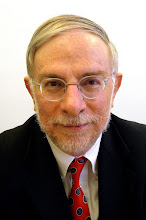sábado, 14 de julho de 2018
segunda-feira, 9 de julho de 2018
Universal Machines
utm theorem
Jump to navigationJump to search
In computability theory the utm theorem, or Universal Turing machine theorem, is a basic result about Gödel numberings of the set of computable functions. It affirms the existence of a computable universal function, which is capable of calculating any other computable function (Rogers 1967:22). The universal function is an abstract version of the universal turing machine, thus the name of the theorem.
Roger's equivalence theorem provides a characterization of the Gödel numbering of the computable functions in terms of the smn theorem and the utm theorem.
The utm theorem
The utm theorem states that there is a partial computable function u of two variables such that, for every computable function f of one variable, there is an e such that  for all x. This means that, for each x, either f(x) and u(e,x) are both defined and are equal, or are both undefined (Soare 1987: 15).
for all x. This means that, for each x, either f(x) and u(e,x) are both defined and are equal, or are both undefined (Soare 1987: 15).
 for all x. This means that, for each x, either f(x) and u(e,x) are both defined and are equal, or are both undefined (Soare 1987: 15).
for all x. This means that, for each x, either f(x) and u(e,x) are both defined and are equal, or are both undefined (Soare 1987: 15).
The theorem thus shows that, defining φe(x) as u(e,x), the sequence φ1, φ2, … is an enumeration of the partial computable functions. The function  in the statement of the theorem is called a universal function.
in the statement of the theorem is called a universal function.
 in the statement of the theorem is called a universal function.
in the statement of the theorem is called a universal function.References
- Rogers, H. (1987) [1967]. The Theory of Recursive Functions and Effective Computability. First MIT press paperback edition. ISBN 0-262-68052-1.
- Soare, R. (1987). Recursively enumerable sets and degrees. Perspectives in Mathematical Logic. Springer-Verlag. ISBN 3-540-15299-7.
Assinar:
Comentários (Atom)
